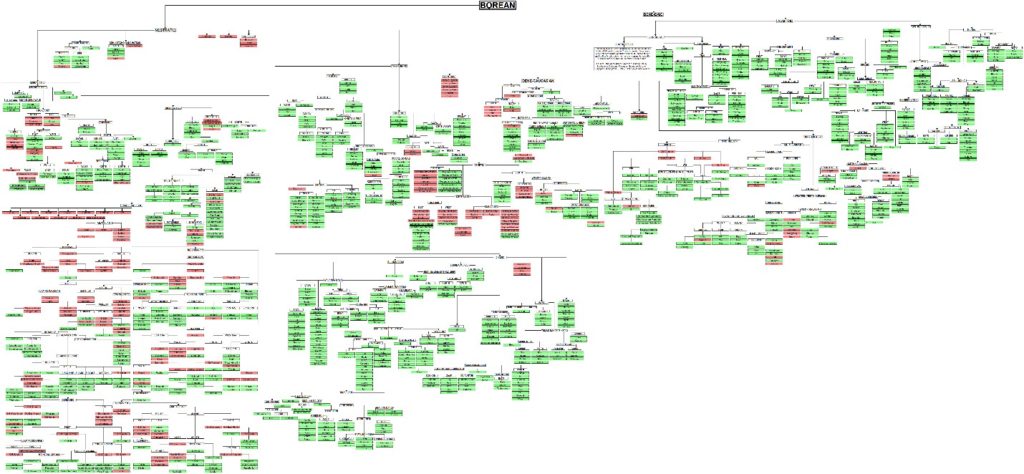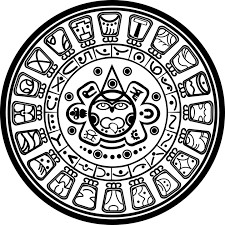We know that good SEO content includes keyword usage to get the rankings up. But as the saying goes, “Too much of a good thing can be a bad thing.” The same is true of SEO keyword density. If a web page reads like it was written to hypnotize you with the keyword, repeated every ten words, you can assume it has a problem. The density of keywords in your content can end up as too low or too high. Neither is good.
An interesting question to ask might be if our own speaking habits reflect or influence what is calculated as acceptable keyword density levels. Speaking patterns shift and sway with the years that pass, after all. So, could today’s target keyword density not work ten years from now?
The Value of Language
The value of language is irrefutable. Be it not for a behavior-based correction that was to have occurred in Biblical Babylon, we’d all be on the same page, reading in the same direction, and speaking words that would generally be identifiable in every corner of the globe. Commerce would transpire with ease at speeds never attained before. Travel to far away countries would become less intimidating and perhaps Americans would even feel more welcomed by the French. One could even hope that speaking louder than normal to someone from another country would have never caught on like the very bad practice it is.

Ah, but how differently do our tongues move today! Indeed, the site, Ethnologue.com claims there are over 7,000 languages today—7,111 in fact. The tree of language image is an intriguing trek into the sources for many tongues, as well as the ending for some. One might wonder, with such a complex network of beginnings and crossovers, how do we escape having more elements of foreign language within our own?
Perhaps we are too lazy to incorporate other tongues into our own more often, or just that there are simpler ways to accomplish the same goal. Improvisation has never been in short supply in this fair land, so the opportunity to enhance a previously adopted word and use it in ways far detached from its original meaning seems efficient, right? The fact is, we already know how to pronounce the word “like,” and we have a familiarity with its basic meaning. How much easier it would be to apply it in lieu (pardon my mid-13th century Middle French) of “as if” in nearly every spoken sentence! One less syllable, after all.
 But I sense our linguistic forefathers were not as committed to the levels of “efficiency” and redundancy English practitioners today possess. The casual observer, if properly trained in the reading of traditional English, can easily notice the difference in writing between, say, a third-grader’s book report and an issue of National Review. The comparison is akin to a meal assembled in seconds with paper wrapping at a fast-food chain versus another served over multiple courses at a Michelin 3-star restaurant. One is sustenance, the other is an experience in art.
But I sense our linguistic forefathers were not as committed to the levels of “efficiency” and redundancy English practitioners today possess. The casual observer, if properly trained in the reading of traditional English, can easily notice the difference in writing between, say, a third-grader’s book report and an issue of National Review. The comparison is akin to a meal assembled in seconds with paper wrapping at a fast-food chain versus another served over multiple courses at a Michelin 3-star restaurant. One is sustenance, the other is an experience in art.
Some fear the steady degradation of language over the course of time. Slang interjects itself into mainstream conversation and ultimately challenges for authoritative acceptance bestowed annually by the trendsetting decision-makers at Merriam-Webster. It is the Emmy Award of words.
Over time, the overfamiliarity of non-words, fluff words, and filler phrases have so polluted our language one might wonder what would remain if ever they were erased. Today, it has become nearly impossible to hear a spoken presentation that does not begin with, “So…” Putting aside all former greetings such as “Good afternoon” or “Thank you for coming here,” the diminutive “So” acts as an immediate relationship-assuming start to a conversation—as if you had already met and had discussed the subject to some extent just a few minutes before. Or is it meant to convey the speaker’s level of knowledge is so complete that the subject must be broken down into easily understood pieces for the untrained listener? But if that were true, wouldn’t one simply use “Basically” at the start of every–oh, wait, they overuse that, too. In any scenario, the likely keyword density of spoken “so” is far higher today than it was ten years ago.
Let’s Talk SEO
A specialist handling white label SEO will tell you that if speech were a webpage seeking SEO (search engine optimization using best-practice keyword density, among other things), it would probably be considered spam. These words are ubiquitous, so prolific, they infiltrate nearly any conversation one can conjure. But they have many co-conspirators in this quest to obliterate our language.
Long ago, I harbored the meaningless two words, “you know,” in what had to be 90% of my verbal babbling. The pairing enjoyed such levels of saturation because of their versatility. They could start a sentence just as well as end one and add nothing of value in either case. My mother grew quite weary of it, and as a wise parent, she commissioned my older sister to mock me each time I included it in my conversations. The embarrassment worked. I spoke very little while in her company, knowing I could not avoid the viral pair of non-words any more than a cookie matched with milk.
Years later, I realized this loving sibling abuse actually worked or caused permanent damage yet to be revealed through counseling. Either way, I survived and feel grateful for the advice. It may have made a difference in my journey through life on numerous occasions, I suspect. Job interviews may have resulted in alternate outcomes and I could literally be living on the Moon right now instead of Florida.
 Hold on. I would not be living on the Moon for any reason whatsoever and using “literally” will not make it any more likely. Why, then, do we hear “literally” used so often? The skill of restraint has diminished, I think, and we now must resort to hyperbole to garner attention from our audience. We use big statements and claims to achieve relatively small gains in believability or reactions while, ironically, undermining our credibility at the same time with literally one word—hah!—and we spam ourselves with a zero value keyword density that could be described as black hat vocal practices.
Hold on. I would not be living on the Moon for any reason whatsoever and using “literally” will not make it any more likely. Why, then, do we hear “literally” used so often? The skill of restraint has diminished, I think, and we now must resort to hyperbole to garner attention from our audience. We use big statements and claims to achieve relatively small gains in believability or reactions while, ironically, undermining our credibility at the same time with literally one word—hah!—and we spam ourselves with a zero value keyword density that could be described as black hat vocal practices.
The list of words used like this is long, and it is growing by the minute. Really? Well, if one can overlook this unsubstantiated rate of “progress” in verbal abuse for just a moment, can we ponder: What has happened to a “minute,” anyway? The value of time and its relevance to human existence has been upheld throughout history. Ask any Mayan what was most certain in life and the answer was their calendar (we can forgive them for not knowing Spanish conquest was up at the top of that list, too).
 The calendar we all use has months, weeks, days, and is updated annually. Our days are subdivided into hours, minutes, and seconds. At some point, we shredded the second off to become an arbitrary unit of measure. Give it a second, you’ll realize it’s true. Excusable, really, because the second is so small. What’s the difference between one and 30 seconds? It is the penny of time. But today we have stepped up to sacrifice the “minute” upon our verbal temple altar.
The calendar we all use has months, weeks, days, and is updated annually. Our days are subdivided into hours, minutes, and seconds. At some point, we shredded the second off to become an arbitrary unit of measure. Give it a second, you’ll realize it’s true. Excusable, really, because the second is so small. What’s the difference between one and 30 seconds? It is the penny of time. But today we have stepped up to sacrifice the “minute” upon our verbal temple altar.
This is not the same “minute” that is interchangeable with the “second” (“be there in a minute/second”). Today’s definition of a day nearly resonates with Biblical standards. A “minute” now can mean several months, or even years! The range is completely relative, and the true time value is known only to the speaker. Many Biblical scholars equate a “Day” to 1000 years. If we used this ratio, a “minute” would equal 146 days. Start chiseling those tablets, folks.
One can appreciate the effort—however cloaked it may be—that any reference to time delivers to a listener. A second or even a minute gives some value, whereas another popular trailing edge duo give us absolutely nothing. A case could easily be made that proves they even subtract from the authority of a speaker.
I present to you, “whatever” and “stuff like that.”
These are highly virulent and completely detractive in value. They end a sentence by adding uncertainty, revealing a lack of detail, knowledge, and firmness speakers usually intend to uphold. The conclusive “…or whatever” pulls the rug out, leaving the speaker vapid and apparently in need of more training, we think. It has no purpose, no value, no place in conversation—and as far as keyword density is concerned, it must be melting the gauge from what I have been witnessing. Everyone from teenagers to CEOs are ending well-thought-out statements with “or whatever.” Shame, I say! We must fight back!
Its cohort is no better. The seldom imagination inducing turd word combo du jour, “and stuff like that” paves the way to far greater levels of insignificant speech. Detailed lists of items or instructions that had momentary value are orphaned as they are capped by “and stuff like that.” Are we to wonder what other “stuff” could join the other items mentioned? No, we have come to realize the ending simply means “I don’t really have the time to think any further and provide a more complete answer. You’re on your own, and I’m done talking.”
Consider an announcement that could give lifesaving instructions to an audience: “Please make your way to the nearest exit quickly. Leave your baggage behind, remove your shoes, and stuff like that.” Do I also remove my glasses? How would I find my way to the exit? Oh, this is so confusing.
“Completely impossible,” you say? A local medical professional, despite direct access to cutting edge preventative treatments and medicine, is known to be infected with this filler-phrase and has been heard using it during discharge instructions to patients. Not a particularly inspirational moment for the patient, I am sure.
Ultimately, we are all exposed to such detrimental infiltrations of linguistic corruption. So, to end this like a good firework display or spammy oversaturated keyword density—LOL—here are some other favorites that didn’t get center stage in this piece of content, or whatever. I mean, they could have been equally blameworthy, okay? But I thought it was time to wrap up the article, right? Anyway, the fluff and stuff that pollute our oratories, undercutting our authority, confidence, stature, and so on and so forth is abhorrent. IDK, it is literally an issue, and well…yeah.
Authorship: Jay W.
Cited:
“Language Tree” (image); by permission.






























